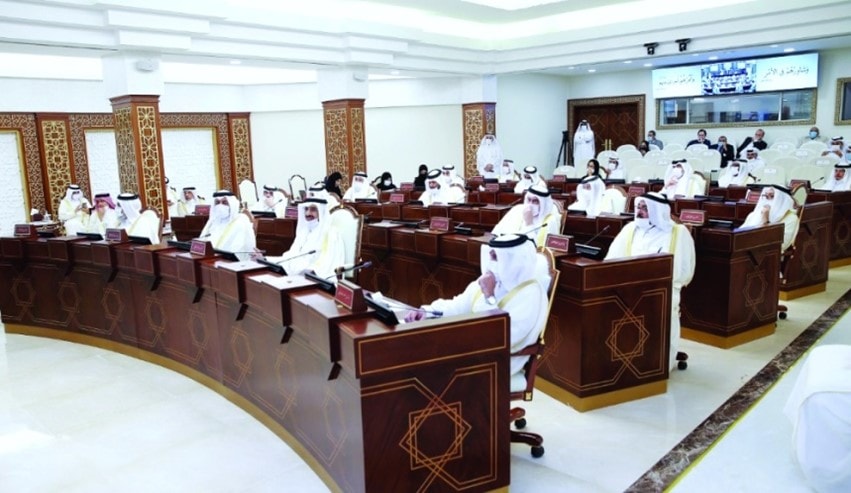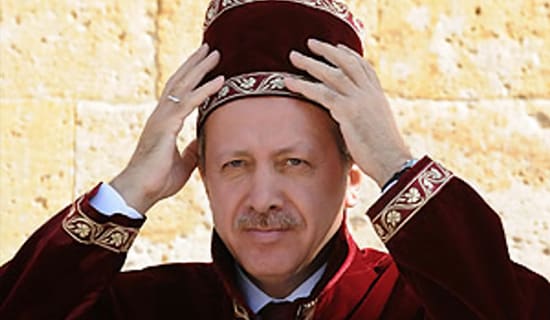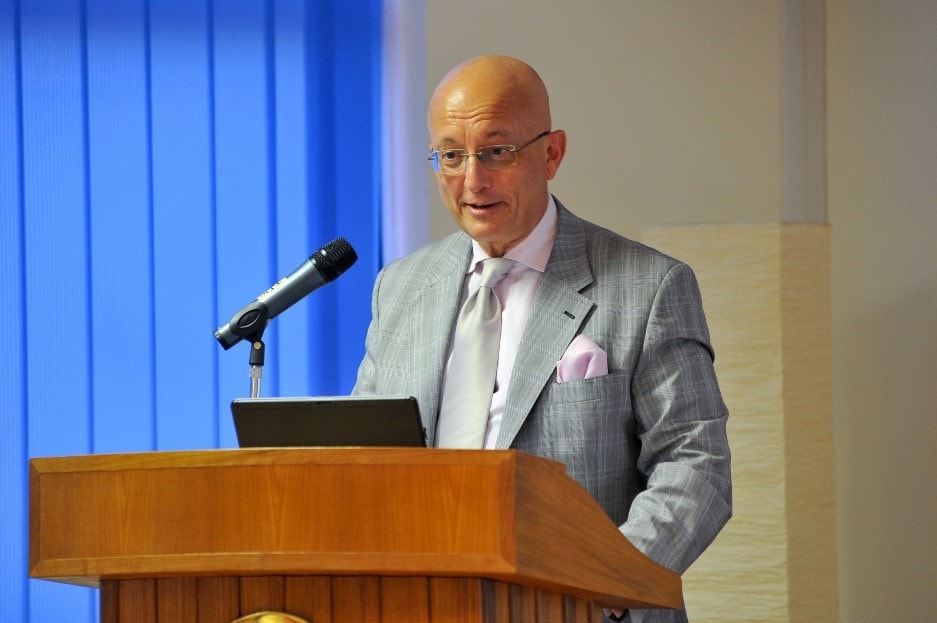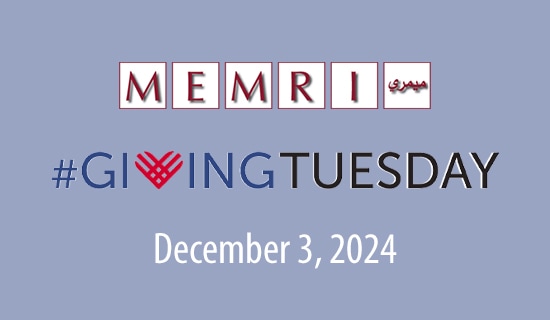Introduction
On November 3, 2020, Qatari Emir Tamim bin Hamad Aal Thani announced that in October 2021, for the first time in Qatari history, elections would be held for the Qatari Shura Council, or parliament. This is not the first time parliamentary elections have been announced in Qatar. This already happened once during the reign of the present emir, in 2017, and several times during the reign of the previous emir, his father Hamad bin Khalifa Aal Thani; in all these cases the elections were subsequently postponed.
The emir made the announcement in a speech at the opening of the parliament's 49th session. He said: "The preparations for the parliamentary elections have almost reached their conclusion, and they will be held next October, if Allah wills it, in accordance with the constitution, which was ratified 18 years ago in a 2003 referendum and published in 2004. Thus, an important step was taken to strengthen Qatar's tradition of shura [consultation] and toward the development of a legislative process with broader citizen participation."[1]
The Qatari constitution, which as mentioned was published in 2004, states that the Qatari parliament comprises 45 members: 30 of them elected by the public in direct and secret ballot elections, and the remaining 15 appointed by the emir.[2] However, to date no Qatari parliamentary elections have been held, and while dates have been set several times, there have been repeated postponements, on various pretexts. It is important to note that even if elections do take place as planned in October 2021, the emir still has the power to appoint a third of the MPs.
The emir's announcement of a new election date caused quite a stir in the Qatari press. Alongside articles praising the move and depicting it as one more step toward the establishment of democracy in the country, many writers referred to the social, cultural and political obstacles in its way. Some stressed that Qatar lacks an institutional and cultural infrastructure, as well as ideological and political frameworks, for democracy, and expressed skepticism that the country and the voters are ready to conduct free and fair elections. Others wondered whether the voters and the potential candidates understood their responsibilities and their roles, and expressed concern that tribal and sectoral affiliations would be a major consideration in the choice of candidates.
One of the writers stated that elections in and of themselves are not evidence of democracy, since democracy is a matter of culture and a way of life and must be expressed in numerous areas. For example, he says, the Gulf States, including Qatar, see an advantage to individual rule, and restrict civil society organizations that constitute an infrastructure for democracy. Others argue that Qatar's widespread culture of suppressing problems and hesitance to voice criticism are a barrier to democracy in the country. Another writer called for increasing the number of women candidates in the parliamentary elections, stating that true democracy was not possible when half of society is excluded from the legislative and decision-making processes.
This report reviews the history of the repeated postponement of the Qatari parliamentary elections, and presents several of the articles published in the Qatari press indicating the obstacles and problems that could again prevent the holding of democratic elections in the country.
The Repeated Postponement Of Parliamentary Elections In Qatar
As noted, although the Qatari constitution, which states that 30 MPs are to be chosen by vote, was published in 2004 during the reign of Sheikh Hamid bin Khalifa Aal Thani, the father of the current emir, to this day this section of the constitution has never been implemented and parliamentary elections have been postponed repeatedly.
In 2006, then-Qatari deputy prime minister and foreign minister Hamad bin Jassim bin Jaber Aal Thani announced that parliamentary elections would be held in 2007, but in the end they were postponed, and an advisory committee for examining the issue of elections was set up. Later, it was decided to hold them in 2010, and again they were postponed. In November 2011, then-emir Sheikh Hamid bin Khalifa Aal Thani announced that parliamentary elections would be held in the latter half of 2013,[3] but in June that year the title of emir passed to his son Sheikh Tamim bin Hamid, and again there were no elections.
After repeated extensions of the MPs' terms in office, and the appointment of new ones over the years, Emir Tamim bin Hamid announced, in November 2017, that the Qatari government was preparing to hold parliamentary elections and that these preparations, to include the drafting of an election law and the division of the country into electoral precincts, would take about two years.[4] In October 2019, the emir ordered the establishment of an election preparatory committee,[5] and on November 3, 2020 he declared, as noted, a new election day, in October 2021.
On December 31, 2020, Salem Saqr Al-Muraikhi, director of the Legal Affairs Department at Qatar's Interior Ministry, announced that the election preparatory committee had nearly completed its preparations and provided the initial details of the expected process: Qatar was to be divided into 30 electoral precincts, each of which would elect a single parliamentarian. He also set out limitations on foreign funding of candidates, and additional limitations concerning election campaigning. [6] However, because of the repeated postponements, it is too soon to tell whether elections will indeed take place as scheduled.

Qatari Emir Tamim bin Hamid announcing parliamentary elections, November 3, 2020 (Source: Aljazeera.net)
Qatari Journalists Express Doubt That The State Is Capable Of Holding Fair Elections
As stated above, the Qatari emir's announcement of the country's first parliamentary elections prompted a flood of articles in the press expressing doubt that such elections could be held because of the many problems and obstacles blocking the development of democracy in the country.
Qatari Journalist: Qatar, Which Has No Political Parties, Must Change Its Political Culture
'Abd Al-'Aziz bin Muhammad Al-Khater, a columnist for Al-Sharq, devoted several columns to the topic of the parliamentary elections, listing a number of problems that must be addressed. In his November 4, 2020 column, he wrote: "As long as a country has no clear-cut ideological or political streams, the election of candidates is dictated exclusively by personal or tribal considerations, and therefore the most prominent considerations are [the candidates'] social and economic status… An MP, whose job is to oversee [the government's performance] and pass laws, needs a party in which he can act and through which he can sense the will of the people and the citizens…
"[Election] platforms provide parties with a basis [for the plans] they mean to implement once they are in power, [but] Qatar has no parties and no party pluralism… Qatari society is a polite society which, instead of making demands, treats [the government] with patience. Given the close relations and unity that prevail between the government and people, demands are [seen as] embarrassing, even though parliaments are supposed to make demands, loudly and clearly. Elected officials are, first and foremost, the voice [of the people] and its means of expressing criticism, even harsh criticism, of [the government's] performance… This [diffidence] must be overcome using clear legal-constitutional measures that will transform [our] society's political culture. The election will mark 18 years since the ratification of the constitution. This period has seen fundamental changes on the regional and global levels, and nations have made significant progress in terms of freedoms, which were presented as the primary demand. Therefore, these new perceptions must be incorporated in the democratic process itself, which is a platform for [attaining] freedoms..."[7]
In his December 3 column, Al-Khater stated that Qatari society needs to overcome its tendency to suppress internal conflicts and problems instead of addressing them, which is an obstacle to establishing democracy. He wrote: "[Cultivating] society's ability to tolerate conflict is the surest road to approaching democracy and establishing it. A society that lives with the conflicts without doing anything [about them] is not necessarily a healthy one, [for] this calm cannot last very long… A society in which decorum comes at the expense of truth is a society that will never embrace democracy. A society that fears criticism is a society that [goes against] human [nature] and lives in a false utopia that will soon dissipate. A society that deals with conflicts by suppressing them from its conscious mind and burying them in its unconscious in order to avoid feelings of guilt ends up experiencing disturbing dreams and black nightmares, for the unconscious does not disappear. It resurfaces and demands to be dealt with.
"The mission of the next parliament will be first of all to expose the hidden abilities of [our] society, while tolerating the conflicts within it and bringing the problems and difficulties to the surface in order to deal with them…"[8]
Columnist For Qatari Daily Al-Sharq: Are We Ready To Conduct Fully Responsible And Neutral Elections?
In a November 26 column in the Qatari daily Al-Sharq, titled "Are We Ready," Muhammad 'Abd Al-'Aziz Al-Ansari wondered about Qatari candidates' and voters' preparedness and maturity for holding free and fair elections like democratic countries do. He wrote:
"Now, after the Emir declared [that parliamentary elections would be held], many questions and thoughts arise – such as whether we, as citizens, have attained sufficient maturity of thought [for such a step]. Are we really ready to hold fully responsible and neutral elections? As everyone knows, in every election process there are two main elements: the candidate and the voter. There are likely [already] people who are considering running in these elections. [But] has this main element [i.e. the candidate] begun, first of all, to explore [what it means to be] a Shura Council member and what an MP's mission, rights, and obligations are? Has he begun to draw up a strategy or plan to present to his constituency, and a mechanism for presenting these ideas? Is he ready to participate in election rallies and [public] discussions with rival candidates, and to debate them, in order to win the trust of a greater number of voters [than his opponent]? Will the candidates have campaign staff and committees for information, logistics, etc. to help them with their campaigns, in order to sell the ideas and plans they have drawn up to the voters?
As for the voter, he [too] must think deeply before casting his ballot for the candidate [whom he deems] worthy of representing the people. [He must] eschew considerations of politeness, because the leadership of his country has entrusted him with choosing the most fitting candidates: [people] with significant leadership skills and a vision for developing [the country] who will serve society and the state in equal measure…
"Qatar deserved the best, so it is important to choose a candidate who is aware of his mission and powers as an MP, who advances the public interest rather than his own, and who carries out the duty of legislation and oversight, rather than dispensing services [to a particular sector or figure]. The candidate must be faithful to his campaign promises. In this context let me mention the first elections to the Central Municipal Council[9] in 1999, and the candidates' campaigns [in that election. These campaigns] later became the subject of jokes because of the promises thrown around by some of the candidates, which that transcended their authority and the authority of the council, such as [promises] to hand out lands to the people of the district or jobs to young people, etc. These promises were made because the candidates were unfamiliar with the tasks and authorities of the council and its members. We hope that this will not recur in the upcoming [parliamentary] elections…
"All these questions [of mine] are intended only to prompt [us] to make the best preparations and manage the election campaign based on a clear strategy and feasible goals, in hope of [facilitating] a general success and a successful democratic experience for our next parliament, [which will be sworn in] in 2022."[10]

Opening of the Qatari parliament's 49th session (Al-Sharq, Qatar, November 4, 2020)
Qatari Liberal In Series Of Columns: Absence Of Democratic Culture, Exclusion Of Women, Are Impediments To Democracy
Following the announcement of the decision to hold parliamentary elections, Qatari liberal 'Abd Al-Hamid Al-Ansari, a former dean of Law and Jurisprudence at the University of Qatar and a columnist for the daily Al-Watan, devoted several of his columns to the obstacles that, in his opinion, face democracy in the Gulf states, including in Qatar.
In his November 16, 2020 column he noted the absence of a culture of democracy and of active civil society organizations in Qatar, which, he argued, form the basis of democracy. He wrote: "Democracy is a culture, an ideology, a perception and a way of life, before it is a political form of government… A child imbibes this culture from his surroundings, [as part of] his upbringing and the behavior patterns that comprise the way of life to which he becomes accustomed. The culture of democracy is a system of supreme civil principles reflecting man's natural tendencies and his constant aspiration to freedom, dignity and independent thought…
"The inculcation of these supreme values in the minds and hearts of the citizens is a necessary condition for healthy and proper political participation, because democracy is born first of all in the minds of the people. Democracy does not begin with elections, but with spreading a spirit of freedom - [freedom] of thought, expression and action in the public domain - [in various forums], from cultural and social forums to NGOs, [trade] unions and associations, and political parties…
"Today, despite the expressions of modernization, education and cultural development that prevail in the Gulf societies, and even though the Gulf is the most open region in the Arab world, when it comes to parliamentary elections the candidates [still] fall back on their fundamental [sectoral] identities, such as their religious, political, tribal or sectarian identity. Religious, tribal and sectarian groups still have the upper hand in the game of elections. The governments in the Gulf do not act to dissolve these identities and fuse them into a shared, supreme [collective] identity, namely a sense of citizenship. On the contrary, they tend to deliberately adopt a policy that relies on and perpetuates these primary identities. On the one hand, this is [indeed] the best way to [ensure] the stability, security and safety of the Gulf's political regimes; on the other hand, in this way the Gulf states swallow up their societies, control their activity, and marginalize civil society and the NGOs that mediate [between the people and the authorities], which become tools [of the regime] with no impact on the political education of the citizens…
"The culture of democracy cannot take root in the absence of civil society [organizations]. [Democratic] values cannot take root if [civil society] is paralyzed or hobbled. Civil society constitutes the infrastructure of democracy and the veins through which the life-blood of democracy flows. They are the factories of democratic culture and values, and the schools where citizens learn political participation… Where there is no active and influential civil society, there is no true democracy, even if formal elections do take place."[11]
In his December 7, 2020 column, Al-Ansari wrote that reform is unlikely in societies that are too comfortable and wealthy, and also that the religious culture of the Gulf accepts autocracy and injustice by the leader as long as he promotes what are perceived as lofty goals, such as opposing Israel and the West. He wrote: "You cannot expect reform in societies that do not need to make an effort to ensure their livelihood and which have plenty of wealth without needing to work hard. This explains why democracy finds it difficult to take root in the Gulf environment, despite the [various] forms of democracy that do exist in the Gulf societies…
"A non-democratic culture is deeply embedded in the Arab reality… That is why it is so easy [for people here] to willingly give up democracy and sacrifice it for the sake of other goals, such as unity, socialism or the liberation of Palestine, which is regarded as the 'greater jihad'…
"Our religious culture is an obstacle to the culture of democracy, and has given birth to two prevalent beliefs: first, that autocracy is not a bad thing, but a politically-required solution that produces quick results. As a result, the principle of shura [consultation] has been emptied of content and become synonymous with one-man rule or with the rule of the elite. Democracy, on the other hand, is perceived as the capricious rule of the masses or of the rabble.
The second [belief] is that the crimes and injustices committed by the Arab tyrant, and the disasters [he causes], are forgivable as long as he waves the [right] banner: in the past it was fighting for the expansion of the Muslim state, and in modern times it means brandishing slogans of resistance against Israel, the U.S., and the West…
"We must be honest with ourselves [and admit] that the autocracy we practice in our daily lives - at home, in our schools, at the workplace and in our relations with the Arab [world] and the Gulf - is not reprehensible in our eyes, and that that the crises we are experiencing today are among the results of this [autocracy]. Many sectors believe that autocracy is better suited to our societies, producing greater stability, security and development and quicker results than democracy, which involves a struggle between partisan, tribal and familial instincts that impedes development and progress… Democracy will not take root and be realized [in our countries] unless this culture, which thwarts it, is dismantled…"[12]
In a December 14 column, Al-Ansari came out against the patriarchal and tribal culture of the Gulf and the exclusion of women from politics, stating that adequate representation of women in parliament is a necessary condition for proper political activity and a healthy democracy. He wrote: "Although the Gulf regimes have opened up to principles that are [generally] taken for granted in the modern era, adopted some principles of human rights, donned a democratic mantle, become modernized and imported new technologies and systems, deep down they are still trapped in a tribal culture and are unable to escape its grip. This is because they are ultimately the political product of a tribal culture and a social heritage that are rooted in the collective mentality of the Gulf and of the Arabs at large, in which men take precedence over women in political activity…
"The presence of women in parliament is a necessary condition for cultivating proper political life. There is no healthy democracy without women and their presence in parliament, [even if they have to be] appointed or if seats must be reserved for them… Quran [13:11] states that 'Allah will not change the condition of a people until they change what is in themselves.' This change can only be achieved with the full participation of both genders. It cannot [take place] when one half of society is not represented in parliament and is excluded from [the roles of] legislation, oversight and decision-making. A woman who is politically marginalized cannot raise a generation that believes in the values of democracy. Women's presence in parliament and in the centers of political decision-making isn't a luxury or a cosmetic measure. It is a vital necessity…
"We frequently repeat the slogan that 'women are half of society,' but this half is not fairly represented in the Gulf parliaments. Doesn't anybody wonder why? They simple answer is that they do not have the same opportunities as men, due to social barriers…"[13]
Qatari Writer: We Need More Women In Positions Of Power
In her December 22, 2020 column in the daily Al-Raya, Qatari writer and journalist Noura Al-Sa'ad noted the obstacles encountered by women in the political arena and hoped that the upcoming parliamentary elections will increase their representation. She wrote: "People falsely claim that the Qatari woman does not want political rights and is not acting to attain them. [But] the truth is that women in our society do not have a single platform for expressing and publicizing [their views], and they cannot fulfill their potential…
"Women are a vital component of the election, and the number of women voters may grow and even exceed the number of male voters, for many men join military and police academies, whose members are forbidden to vote. Women must therefore constitute a large portion of [the MPs] appointed [by the emir],[14] to ensure their [adequate] representation… Women face great challenges, but with perseverance and resourcefulness they may overcome the threat of oppression…
"I am not disregarding the four women who were appointed in 2017 to the Shura Council in its present form, although a Google search yields no information on their activity. I am sure that the elected [Shura] Council will give them greater scope [for action] than the present one, even if this [Shura] Council does not manage to [fulfill all] its roles as a parliament. Furthermore, male and female voters now have tools for expressing opinions and overseeing [the authorities' performance], whose influence is growing thanks to social media."[15]
*Z. Harel is a research fellow at MEMRI.
[1] Al-Watan (Qatar), November 4, 2020.
[2] Almeezan.qa.
[3] Bbc.com, November 1, 2011; Al-Arab (Qatar), November 13, 2011.
[4] Al-Arabi Al-Jadid (London), November 5, 2017.
[5] Shura.qa, October 30, 2019.
[6] Al-Raya (Qatar), January 1, 2021.
[7] Al-Sharq (Qatar), November 4, 2020.
[8] Al-Sharq (Qatar), December 3, 2020.
[9] This council, in charge of construction, planning, infrastructure, trade and industry on the local level, comprises 29 members, each representing a district, who are elected every four years.
[10] Al-Sharq (Qatar), November 26, 2020.
[11] Al-Watan (Qatar), November 16, 2020.
[12] Al-Watan (Qatar), December 7, 2020.
[13] Al-Watan (Qatar), December 14, 2020.
[14] As stated, in the upcoming parliamentary elections the candidates are to compete for 30 of the 45 parliamentary seats, while the remaining 15 MPs are to be appointed by the emir.
[15] Al-Raya (Qatar), December 22, 2020.





